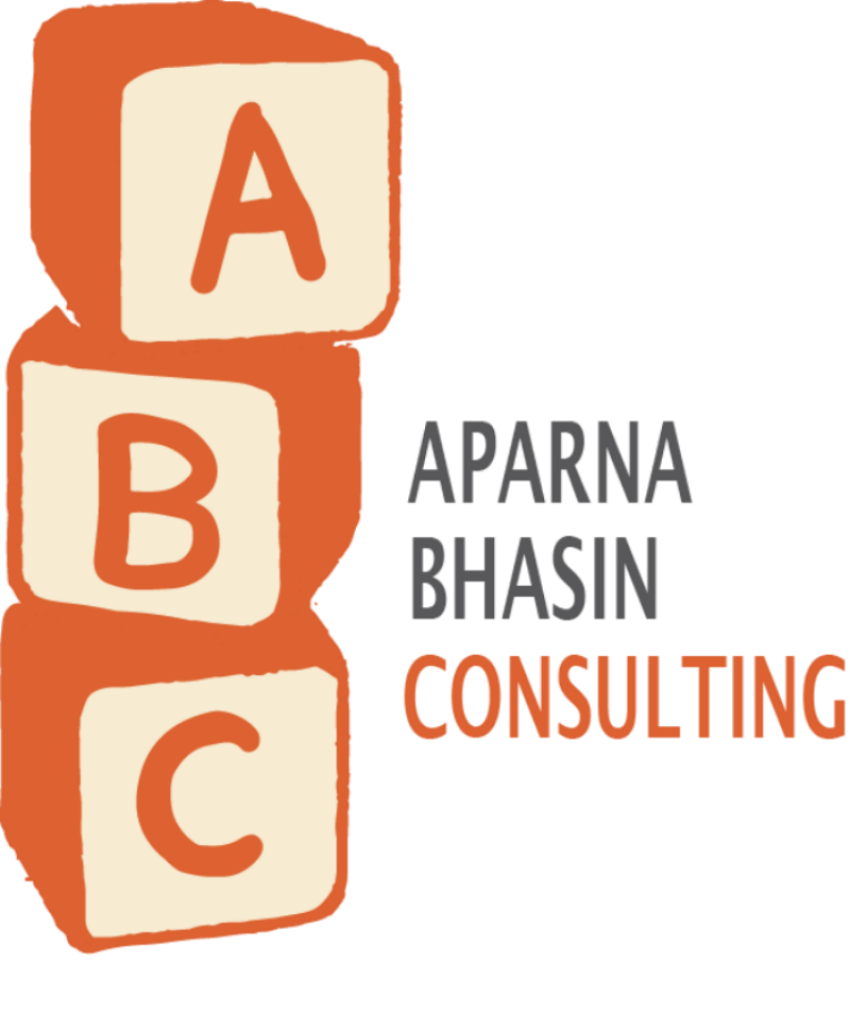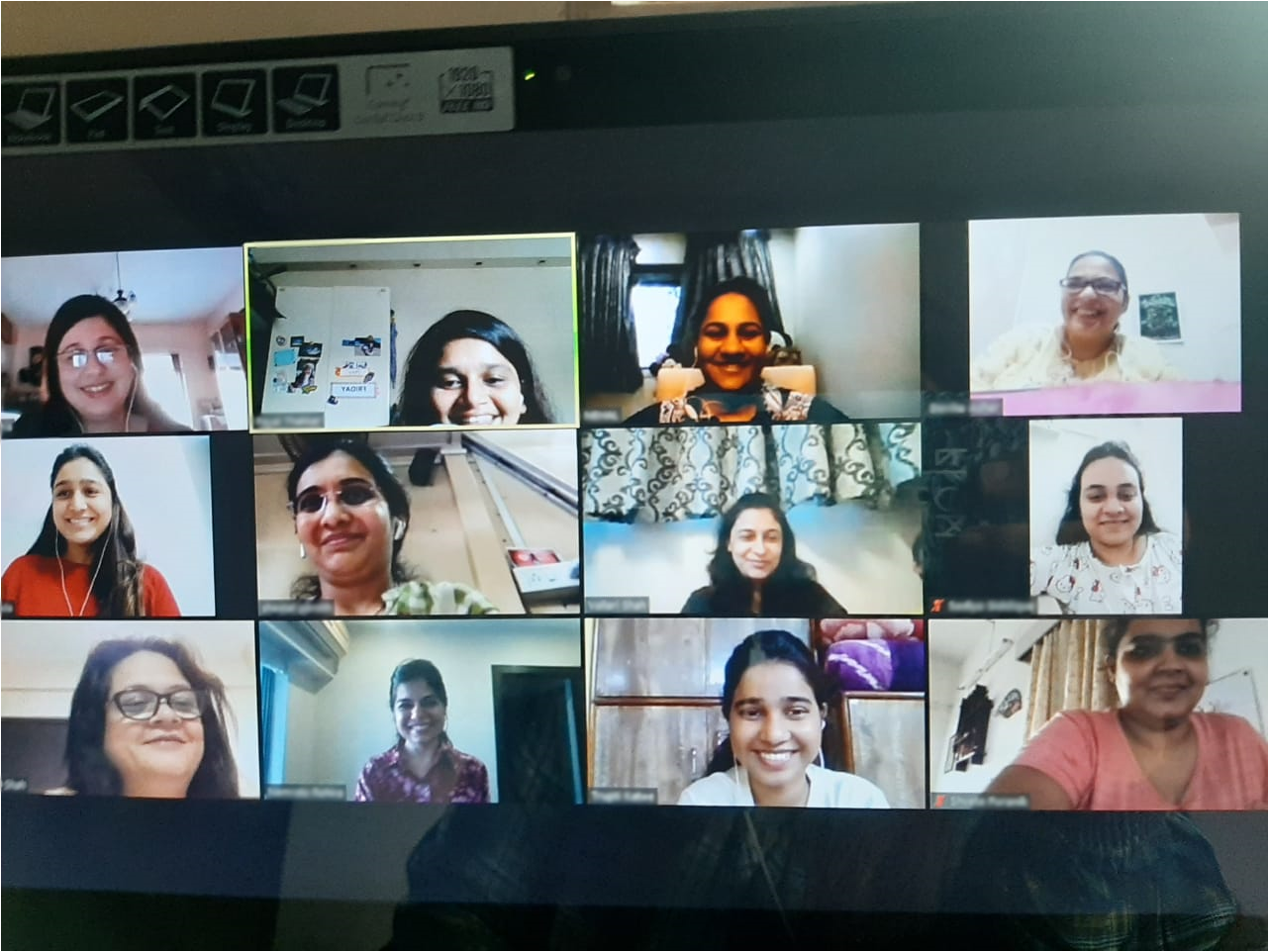Adapting to a Digital Classroom
In conversation with Parinaz Nania - Supervisor and Teacher, Little Wizards School
Little Wizards is a pre-primary school, and is part of the Scholar High School in Colaba, Mumbai. Aparna Bhasin Consulting has been working with Little Wizards to develop a holistic, student-centered curriculum, and support teachers in its implementation. To deal with the challenges of the Covid-19 pandemic, we adapted our capacity development workshops with the teachers to include pedagogy and classroom management for a remote digital classroom environment.
Kashvi, from ABC, spoke with Parinaz to better understand the impact of the COVID-19 pandemic and the shift to remote learning on pre-primary schools.
Hello Parinaz! How have your teacher training sessions been? Have they had any impact on your program?
They have been lovely - Aparna and Juhi have been with us for most of the time and have really guided us well - they were always there when we wanted to ask them something, which has been very helpful.
There is a huge difference between what we used to do and what we are doing now. Earlier, we used to have a set syllabus - like ‘fruits’ for one month, ‘vegetables’ for the next month. The training really got us thinking; there were some superb ideas.
Now, there is definitely still a syllabus, but you bring the children naturally into it - we ask ‘what do you like to eat?’ and topics like fruits and vegetables just follow. ‘How do you travel to school?’ - it’s not transport as a topic, we just cover it in their daily life.
Even though you haven’t been in class yet, do you notice a difference in your teaching style ?
Yes, definitely. Even if we’re telling the children a story, we see to it that there are a lot of props involved, because just telling a story is not that interesting for children that young, especially on screens. If one teacher is telling a story, the other teacher takes over and if the story is about a monkey, showing a monkey makes it more interesting. There is basically more involvement of children.
Could you tell me a little about the transition during the lockdown? When you had to move everything to a remote medium, what was that like?
Initially we were all a bit worried, worried in the sense that we didn’t know if it would work with children this young, we have children from two and a half years old. But it is - they are enjoying it!
“The children are very gadget friendly - they flew to the screen and love to see what we are showing. There is a lot of interest. The parents are also happy that the children are occupied.”
Aparna guided us to have the sessions in small groups, and 4 children in a group, which is working fantastically. They are paying attention - you don’t have to look at many children at once, and you know they are looking at you. It’s not like it should be in a class, but it’s a good thing, we have learnt something. I have never used Zoom before, and now I have become good at it.
The children are very gadget friendly - they flew to the screen and love to see what we are showing. There is a lot of interest. The parents are also happy that the children are occupied. So yes, we’ll have to cover up quite a few things when we get back to school, but I guess we’ll manage - if we can manage this I’m sure we’ll manage then also.
Have there been any changes in the program or teachers because of shortened sessions?
We did not think children would sit still for more than 40 minutes, so there was no use doing it longer than that. There are many things we can do in person, like the games and puzzles we have at the school, though we try to do them over here too. For instance, today we had an activity asking them to run around their house, find 5 things that are red in colour - so we make them move around. We are trying to do as many activities as possible.
“There are parents who tell us “You know, he was waiting for you! On Sunday he said, ‘why don’t we have class today?’” So that’s when you feel, you know, all this is worth it. ”
The teachers are also doing a good job, they are all busy making props, making the time table - so we may be working only 3 days with the children, but it is almost every day we’re doing something to prepare for those three days. But it’s working well - children are responding to us. There are parents who tell us, “you know, he was waiting for you! On Sunday he said, ‘why don’t we have class today?’”. So that’s when you feel, you know, all this is worth it.
To what extent are you on track with your original goals for the year?
We’re running a little behind for the Junior KG especially, on the writing bit. We don’t want to begin when they’re at home because there is a certain format that we use. So we don’t want them to learn something wrong. They do some activities, but the writing bit is left behind, which we really need to focus on later.
Are all the students able to attend the video call usually, or are there differences between the students?
Most of them are attending, there are just a couple of children who are in the village, so they don’t get proper network there, so they are struggling with that. Other than that they are all there.
Is there anything you will take away from this period of working digitally with your students? Adopting something that you have not done before?
We always used to tell them stories in class, but now with some more props learning is helpful. We feel that when kids are watching videos on a screen, they are a little more interested - like I said, the children are very gadget friendly - they are more interested in what is shown to them. So maybe we’ll incorporate a little more of it in the classroom also, maybe on a television or something, on whatever the topic is. You can make out that they have absorbed a lot more looking at the screen, sometimes.
Is there anything else you would like to share either about the transition to remote teaching, the teacher trainings or any of the topics we talked about before we wrap up?
The teacher training as I said has been super helpful. It has brought a change in ourselves, in our teaching, the way we teach the kids - it makes a lot more sense, you know. Honestly, I think Aparna has joined us at absolutely the right time, because after the lockdown, there were two trainings where she focused on how to use Zoom to teach, and there were two demo classes where she would suggest if anything needs improvement.
“For the transition to digital - it’s difficult, but it’s working. I was surprised and happy that it’s working beautifully. This is something that we never expected and nobody wants it but we are in this situation so we can just be positive about it.”
It would have been difficult for us to start on Zoom, but with her help it has been super easy, and it’s actually fun for all. Even the teacher trainings are always very fun and lively, there’s never a moment when you think ‘Bas, enough.’ That’s when you grasp more.
For the transition to digital - it’s difficult, but it’s working. I was surprised and happy that it’s working beautifully. This is something that we never expected and nobody wants it but we are in this situation so we can just be positive about it.
Thank you so much for your time! it has been really insightful to hear your perspective on early childhood education during this challenging time.
N.B. - Interview above has been slightly edited for coherency and flow, however the contents are largely verbatim




